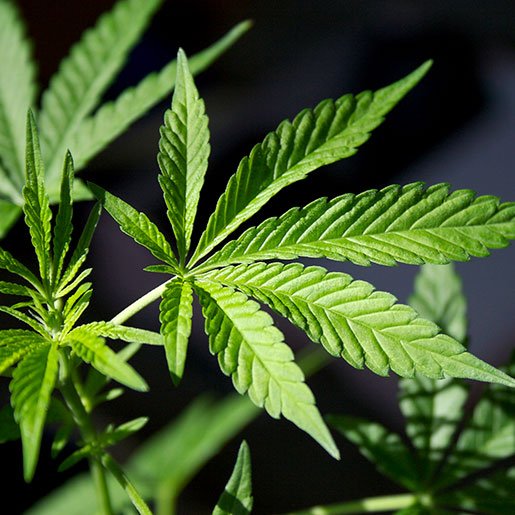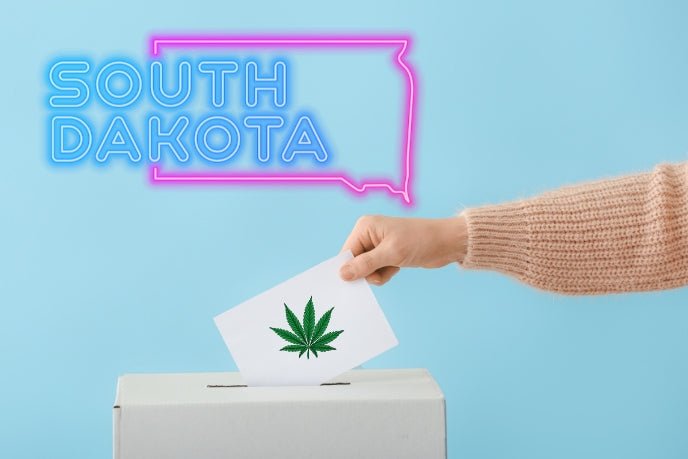In response to a measure that would impose heavy fines on companies caught selling intoxicating hemp derivatives (IHDs), many hemp business owners in the state are calling for more regulation over prohibition.

With more and more states enacting severe restrictions or outright bans on products containing intoxicating hemp derivatives (IHDs), many law-abiding, tax-paying, and hard-working hemp business owners are tired of continuously taking a defensive posture in the legislative debates about their products and industry taking place across the country.
In Illinois, several of them are throwing their support behind legislation to impose solid and definitive regulations on the state’s hemp industry instead of a measure currently circulating through the state legislature that would ban products containing IHDs, like the well-documented and mischaracterized delta-8 THC.
Last month, Democratic Senate Majority Leader Kimberly Lightford filed a bill that would ban delta-8 and other hemp-based intoxicating cannabinoids. Dubbed the Hemp Consumer Products Act (SB3926), the proposed legislation would also impose a $10,000 fine on companies caught selling delta-8 THC or other unregulated IHD products. In addition, the measure establishes a task force to study IHDs to ensure their efficacy and safety.
Not surprisingly, the legislation is backed by the Cannabis Business Association of Illinois (CBAI), in part for safety concerns, with association members pointing to the continued reports of individuals falling ill after consuming items containing IHDs. The primary issue providing impetus behind the bill is child safety.
During an April news conference hosted by the CBAI, Illinois State Rep. Eva-Dina Delgado spoke about a conversation with her 15-year-old daughter in which the teen said delta-8 products are widely available to her peers.
“As a parent, there is nothing more scary than to hear stories from your child about how kids are ‘greening out.’ And when I asked her questions like, ‘Hey, are these kids getting the supply from their parents,’ she says, ‘Oh no, we just go to the corner store,’” Delgado shared.
"As a parent, there is nothing more scary than to hear stories from your child about how kids are ‘greening out.’ And when I asked her questions like, ‘Hey, are these kids getting the supply from their parents,’ she says, ‘Oh no, we just go to the corner store.'"
- Illinois State Rep. Eva-Dina Delgado
Echoing similar sentiments, Tiffany Chappell Ingram, executive director of the CBAI, issued a statement calling for a “pause” of IHD product sales pending further research, according to the Chicago Tribune.
“We look forward to working with legislators to find a path forward that empowers consumers, protects minors, and ensures the state’s adult-use cannabis law lives up to its full promise, including uplifting social equity license holders and communities disproportionately impacted by the war on drugs,” she said.
"We look forward to working with legislators to find a path forward that empowers consumers, protects minors, and ensures the state’s adult-use cannabis law lives up to its full promise, including uplifting social equity license holders and communities disproportionately impacted by the war on drugs."
- Tiffany Chappell Ingram, Executive Director of the CBAI
As expected, the Hemp Consumer Products Act is opposed by several state lawmakers as well as many advocates and stakeholders of the hemp industry, who view the bill as far too punitive and capable of effectively destroying the burgeoning market.
On Tuesday, a large group of opponents held a press conference in Springfield, the state capital, to voice their case against Lightford’s measure and show their full support for a different bill aimed at regulating the state’s hemp industry.
One of those in attendance was Jennifer Weiss, founder and CEO of hemp products retailer Cubbington’s Cabinet in Chicago. During the press conference, she expressed her fears that Lightford’s legislation could set such strict limits that it would prohibit sales of non-intoxicating products like CBD.
“We would have to shut our doors, as well as hundreds of other Illinois companies. Let’s not go backward with out-of-touch prohibitions,” she said.
"We would have to shut our doors, as well as hundreds of other Illinois companies. Let’s not go backward with out-of-touch prohibitions."
- Jennifer Weiss, Founder and CEO of Cubbington’s Cabinet
To provide a more balanced and less extreme approach to the problem, hemp entrepreneurs support a separate bill (HB5306) from Democratic state Representative Rep. La Shawn Ford. At the press conference, he expressed his belief that Lightford’s bill would most likely eliminate the Illinois hemp industry, opening the door for a new illicit market for items containing IHDs.
“Prohibition doesn’t work, and Illinois should reject going backward,” he said.
"Prohibition doesn’t work, and Illinois should reject going backward."
- Democratic State Representative Rep. La Shawn Ford
Ford’s proposed legislation would:
- Create a regulatory and taxation framework for hemp-derived cannabinoids, including provisions for the licensing of businesses.
- Limit the sale of IHD products to adults over 21.
- Set a limit on the amount of THC allowed in consumable hemp products.
- Ban look-alike hemp product packaging that mimics the look of other consumer goods.
His measure aims to prevent children from accessing IHD products and remove look-alike items from the marketplace. The legislation would better regulate the state’s hemp industry without endangering the survival of the market sector, which is expected to generate over $1.5 billion in the next four years.
“We must do something about delta-8 and other unregulated delta hemp products now. Personally, I’ve been working with the industry calling for regulations for the better part of three years, and it’s time to act now,” Ford said at Tuesday’s press conference.
The Illinois case is a perfect example of the legislative drama playing out in over 30 state houses nationwide. The first punch against the young and still-developing industry by Big Cannabis-funded politicians may have stunned many hemp business owners, supporters, and customers at first.
However, their collective responses from state to state are beginning to gain momentum. This latest counterpunch by hemp-friendly lawmakers and stakeholders should serve as an effective template and game plan against the well-funded cannabis interests determined to eviscerate a $28 billion industry that has much more fight in it than may have been previously anticipated.








































